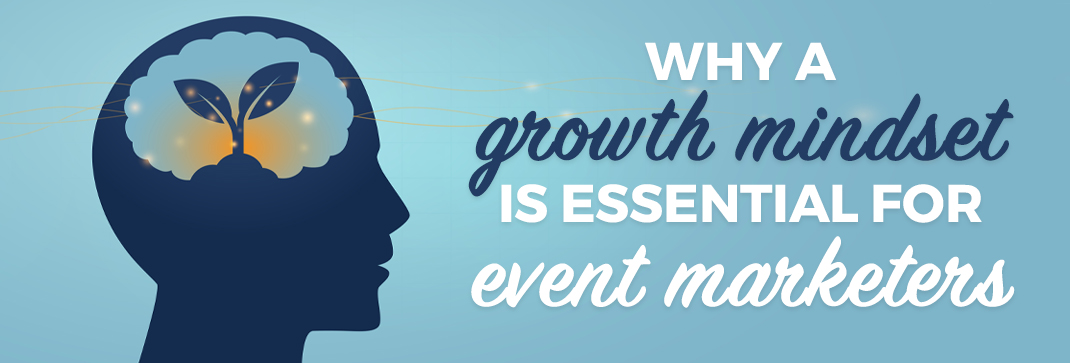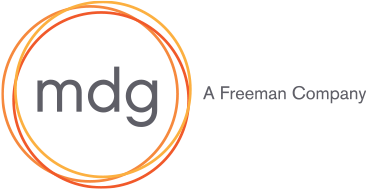
Psychologist Carol Dweck coined the terms “fixed mindset” and “growth mindset” to describe the underlying beliefs people have about learning and intelligence. In short, someone with a growth mindset thrives on challenges, exercises intellectual curiosity and views failure as a springboard for growth and development. During the pandemic, event marketers with a growth mindset experimented with new ways to serve their audiences, collaborate with their remote teammates and generate revenue for their organizations. So, now that the worst of the pandemic is (fingers crossed) behind us, how can event marketers continue learning, innovating, experimenting and moving boldly into the future?
Start by resisting the temptation to revert back to 2019. While that sounds obvious, it’s actually easier said than done. That’s because the past is safe, comfortable and familiar. The future, however, is unknown and scary. Navigating it requires us to break free from legacy thinking, to learn new skills, to question long-standing beliefs and sometimes to make hard decisions about how our teams are structured, how our budget dollars are allocated and how our events are positioned. Resist the urge to pick up the same tactical plan and use all the same messages and mediums that you used before. Instead …
Brainstorm new ideas as if your event was a launch. Involve your entire event team (not just marketing) and ask, “If we were to create and launch a brand-new event that competed with ours, what would it look like?” Perhaps this discussion will open doors to new offerings, new markets, new opportunities to seize and/or new strategies to deal with competitive threats. Perhaps it will shed light on offerings, strategies or tactics that are no longer serving you.
Experiment with new channels and new tactics. Dirty databases, email fatigue, data privacy rules and the overall pace of change in the marketing landscape demand that you take an omnichannel approach to reaching and engaging your audience. From tactics like TikTok, digital TV and digital out-of-home to industry-specific tools like InGo and Gleanin to influencer and content marketing, it’s time to innovate. If you’re out of your comfort zone in these areas, consider using an agency or consultant to help get you started.
Get to really know your audience. Perform primary research (focus groups or interviews) with members of your audience to discover what makes them tick — and what makes them attend your event (or not). Ask questions like, “What keeps you up at night?” and “What would you attempt to accomplish in your career if you weren’t afraid of failing?” and “What professional opportunity are you most excited about seizing in the next year?” You’ll learn so much more about your audience than you would by asking questions like, “Why did you attend?” or “What sessions would you like for us to offer next year?” And best yet, you’ll have great new insights to apply to your next marketing campaign.
Don’t fear failure. Of course, not every tactic will perform (whether performance is defined as generating awareness, piquing interest or actually converting) and not every piece of creative will resonate. Ensure you are tracking, measuring, learning and adapting. And while you need to have patience — it takes time to move cold leads through the customer funnel — you also have to know when to pivot away from something that’s not working. The continual process of testing an idea, learning from the results and iterating is only possible with a growth mindset.
While Dweck uses the term “fixed mindset” to describe someone who avoids challenges, gives up easily and has a deterministic view of the world, Ken Holsinger, senior VP of strategy at Freeman, warns event professionals against adopting a “recovery mindset.” Essentially, when we focus on recovery versus growth, we waste budget dollars trying to reactivate prospects lost in The Great Reshuffle versus finding new leads, we recreate the same events we had in 2019 versus creating ones that better align with the changes that our industries have experienced and, in general, we obsess over replacing what was lost in the past versus seizing what could be in the future.
A version of this article originally appeared in PCMA Convene.


